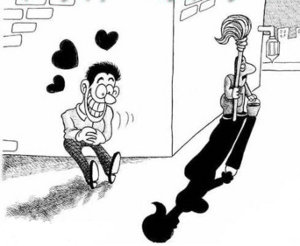Business analysis consists of all facets of solving business problems. Business analysis is a role executed by project, product, and engineering managers as well as other people. However, there are people that do business analysis as their main role and we simply label them as business analysts or product managers.
We shall stick to the term business analyst for simplicity. Business analysts perform a range of tasks including:
- Gathering requirements
- Writing business cases and project charters
- Performing gap analyses to incorporate new products
Are your BAs any good?
The success of many projects depend on the ability of the BA do correctly identify the problem you are trying to solve. If your BA is not competent then you are doomed before you start.
Ever suspect that the people responsible for performing business analysis for you are not up for the challenge? Here are three simple questions; good business analysts will get all three correct and not take longer than 30 seconds.
| Context | Question | |
| #1 |  |
Which of these two lines is longer? |
| #2 |  |
What does this sign say? |
| #3 | I have two products whose prices add up to $1.10 and one product is $1 more than the other. | How much is the more expensive product? |
The answers are:
- The lines are the same length
- Take a ruler if you are not convinced
- Paris in the the spring
- Notice that the occurs twice
- The more expensive product is $1.05
- If the more expensive one had been $1 then the cheaper one would be $0.10 but then the expensive one would only be $0.90 more expensive than the cheaper one.
Most BAs are well educated; however, the interesting thing is that studies show that educated people are less able to see their biases and they jump to conclusions more readily than other people.1 Even worse, well educated people have less of a tendency to check their conclusions than other people.
A good business analyst realizes that during analysis there will be situations where the mind will jump to conclusions. Many business analysts are asked to resolve conflicting requirements, recognize missing requirements, and deal with biases coming from many different sources. Unless you have the reflex of checking facts for consistency and eliminating bias then you won't make a good business analyst.
So what is the quality of your BAs?
Other articles
Bibliography
1 West, Richard F. and Meserve, Russel J. Cognitive Sophistication does not Attenuate the Bias Blind Spot. Journal of Personality and Social Psychology.



No comments:
Post a Comment